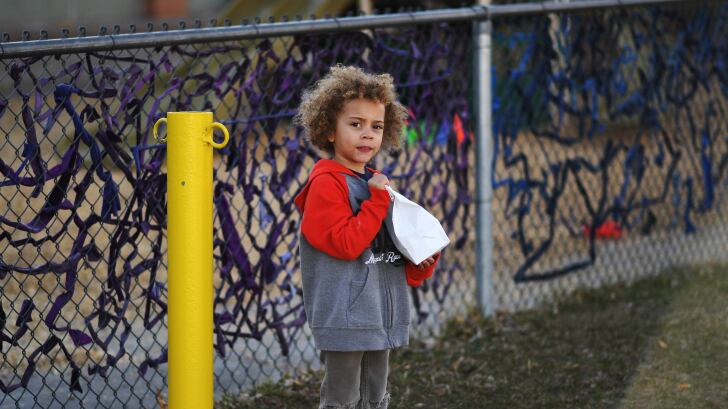The millions of dollars that Denver Public Schools will save by cutting central office employees will be spent on four initiatives, including creating “community hubs” to provide services for families such as GED classes, mental health support, and help with job placement.
That’s according to a plan laid out by Superintendent Alex Marrero at a school board meeting Thursday. Two days prior, on Tuesday, the district told 131 central office employees their jobs were being cut. Because some positions are being reposted, in some cases with new job titles, the net reduction of central office positions is 76, a district spokesperson said.
Eliminating those 76 positions will save the district $9 million next year, officials said. The district’s total budget is about $1.2 billion.
Marrero told the school board that he plans to invest that $9 million in:
Opening six community hubs this fall in partnership with the city of Denver and community organizations, including the Denver Housing Authority, the Montbello Organizing Committee, Westwood Unidos, and others. The community hubs would use a two-generation approach, providing services to young students and their families.
Those services could include assistance with basic needs such as food, clothing, and housing; workforce development help such as resume building and interview preparation; GED, citizenship, and English language classes; and mental health services for adults, among other things.
The locations of the community hubs haven’t been finalized, Marrero said, but he hopes there will be one in every region of the city. The locations would likely be temporary as the district pilots the hubs next school year, he said.
Increasing wages for hourly workers, including paraprofessionals, food service workers, custodians, health technicians who help in school nurses’ offices, and others. Marrero said about 1,200 district employees currently earn the city’s minimum wage of $15.87, and this investment would boost that, though he didn’t say by how much. The goal, he said, is to raise wages over time to $20 an hour, a priority of board Vice President Tay Anderson.
Offsetting rising health care costs for all district employees. Premiums for the district’s largest health care plans rose by 10% this year, Marrero said. The district intends to use some of the central office savings to pay that down so employees won’t shoulder the entire cost.
Become a Chalkbeat sponsor
Supporting schools with declining enrollment by supplementing their budgets. Denver schools are funded per student, and fewer students means less money to hire teachers and other staff. As the district debates how to close or consolidate small schools, Marrero said this money would help schools weather funding decreases.
Marrero’s presentation did not specify how the $9 million would be divided among the four initiatives. The school board is set to vote on next year’s budget in early June.
Melanie Asmar is a senior reporter for Chalkbeat Colorado, covering Denver Public Schools. Contact Melanie at masmar@chalkbeat.org.







